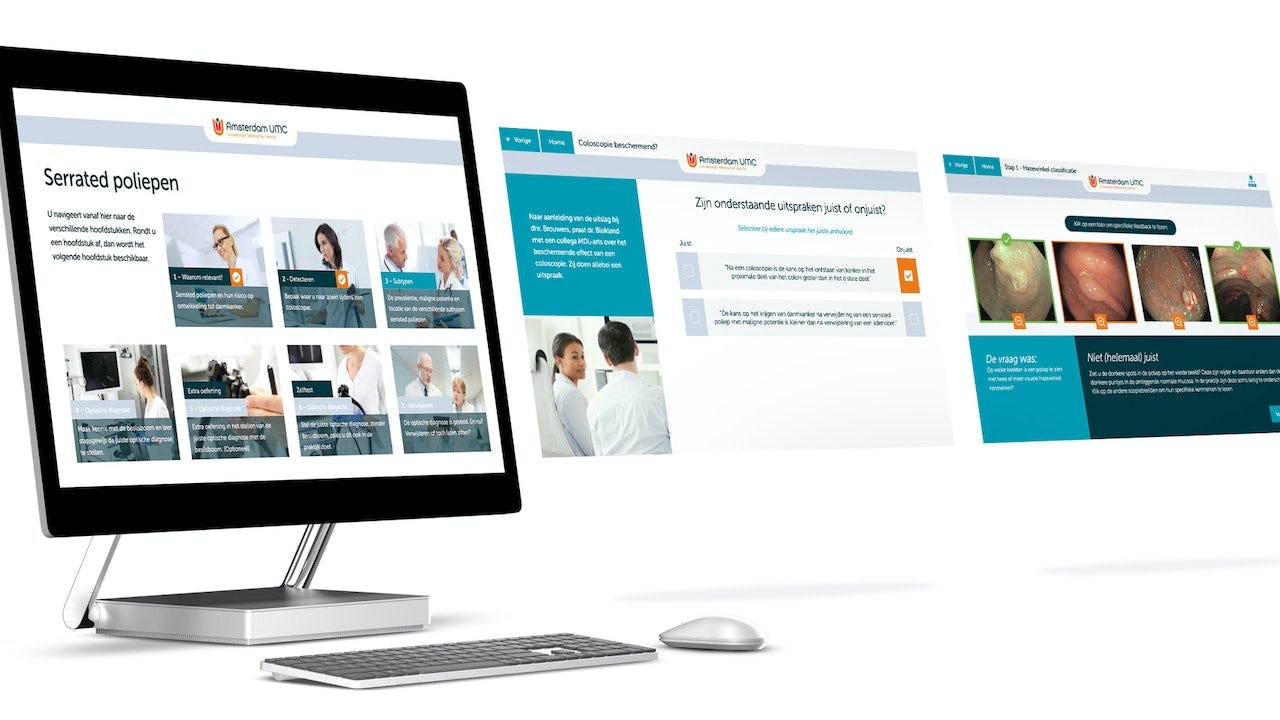Bright Alley (part of Conclusion) is a leading agency in developing digital learning solutions that help employees reach their full potential. “Bevolkingsonderzoek Nederland wanted to take knowledge sharing with other groups to the next level,” says Jeanne-Marie Baarends, Business Developer Digital Learning at Bright Alley (part of Conclusion). “Together with our designers, developers, educational experts, and the subject matter experts from BVO NL, we developed a knowledge platform where you can find informative PDFs, infographics, and e-learnings. This platform has now been running for several years and is widely used by various groups of doctors.”
Taking knowledge sharing to the next level
A few years ago, Bright Alley (part of Conclusion), commissioned by Amsterdam UMC and Bevolkingsonderzoek Nederland, developed an e-learning as part of a PhD research project by one of the specialists.
The assignment was to develop a module that supports endoscopists in detecting sessile serrated lesions as early as possible. Doctors are generally well trained in recognizing polyps, and most of these are identified effectively. However, some polyps contain cells that can change and eventually develop into malignant tumors. There are different types of polyps: some are easy to recognize, while others are much harder to detect. It is precisely these hard-to-recognize polyps that can pose an increased risk. Timely and accurate identification of all types of polyps—including the subtle and hard-to-see ones—is therefore of crucial (life-saving) importance.
“E-learning offers the opportunity to practice this independent of time and place—which is no luxury given the busy schedules of specialists,” says Jeanne-Marie. “It fits well with the daily practice of doctors: they are presented with realistic cases and a large number of clear images of those hard-to-recognize polyps, allowing them to quickly learn to recognize a wide variety and assess abnormalities efficiently.”





